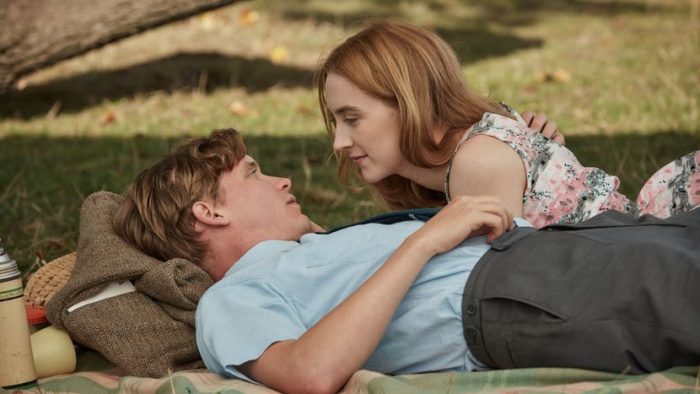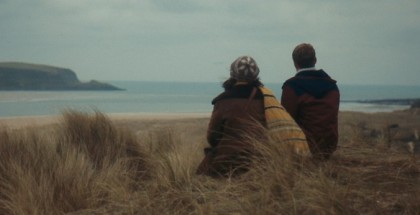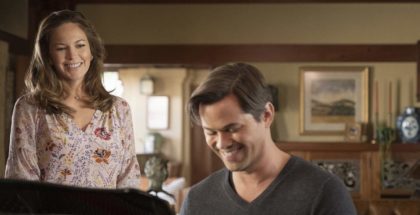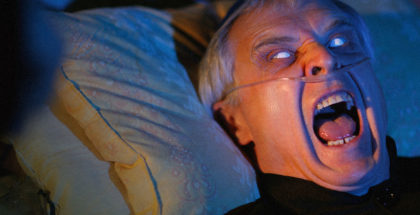Netflix UK film review: On Chesil Beach
Review Overview
Cast
8Script
6Awkwardness
7David Farnor | On 19, Sep 2018
Director: Dominic Cooke
Cast: Billy Howle, Saoirse Ronan
Certificate: 15
Watch On Chesil Beach online in the UK: Netflix UK / Apple TV (iTunes) / Prime Video (Buy/Rent) / TalkTalk TV / Virgin Movies / eir Vision Movies / Google Play / Sky Store
Dominic Cooke brings Ian McEwan’s novella to life in this deeply moving drama about a young couple on their honeymoon on the titular British coastline. But warm and sentimental their visit is not: this is a sad, nuanced, prickly film about the tragedy of naive youth and the pain of trying to grow up too fast.
Billy Howle recalls Eddie Redmayne as country bumpkin Edward, who falls for Londoner Florence (an excellent Saoirse Ronan), and their chemistry is as warm as their arguments are awkward. Taking place in the early 1960s, there’s a buttoned-down intensity to their relationship, an interaction that you can imagine playing out much differently several years later, when Beatlemania and the sexual revolution would strike.
The script, adapted by McEwan himself, weaves the source material’s elegant, if overly literary, structure into their honeymoon, as we flash back to the early days of their happy courtship: Edward, being from humbler stock than Florence, talks to her in Oxford when he first discovers he has a first from university, and needs to tell someone, anyone about his success. Florence, a violinist, is at a CND meeting when he stumbles in, and there’s both humour and tenderness in the way that their respective backgrounds informs their initial dating; Samuel West and Emily Watson (as Florence’s parents) are effective contrasts to Edward’s own parents, played by Adrian Scarborough and (in a scene-stealing turn) Anne-Marie Duff, with his mother suffering from mental health issues after a train-related accident.
But it’s the film’s refusal to shy away from the embarrassment of first physical contact that carries the same melancholic weight as the original book, with Ronan’s superb performance capturing the alienation that can still be felt even in a bedroom – not to mention one in a boringly unremarkable B&B in Dorset. Expectations, pressure and annoyance at an inability to do what one thinks one should are bubble to the surface, and Howle, like Ronan, conveys the kind of frustration and anger that can only be driven by ignorance and insecurity.
It’s a shame, then, that the final act lacks Florence’s viewpoint, and is let down slightly by some questionable make-up; a dive into Edward’s perspective of events attempts to expand upon the book’s climax but ends up sapping momentum. Nonetheless, Cooke’s camera delicately balances the fragility of relationships (particularly those of a generation whose parents were very reticent to discuss intercourse) with intimacy and detachment, finding deafening devastation in a silent tracking shot that pulls away from the couple, keeping each one of opposite sides of the frame.
On Chesil Beach is available on Netflix UK, as part of an £9.99 monthly subscription.























